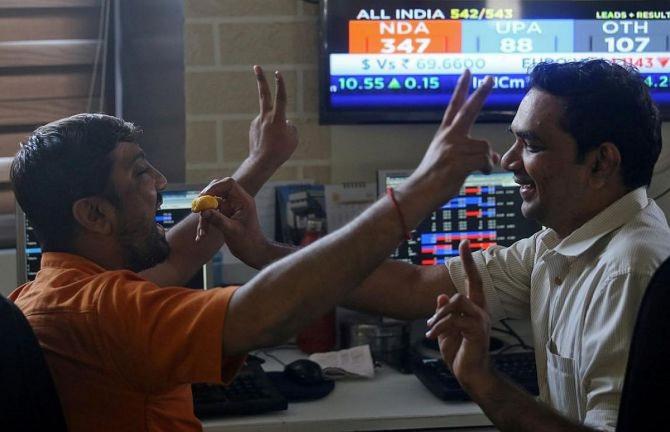Despite the wobble in the markets over the past few weeks, Indian equities remain expensive as measured by several yardsticks.
India’s market capitalisation-to-GDP ratio, for instance, has touched a multi-year high.
The ratio is currently at 116 per cent, based on the FY22E gross domestic product (GDP) number, above its long-term average of 79 per cent.
It is at the highest level since CY07, according to a note by brokerage Motilal Oswal Financial Services.
Indian equities are trading at 23.9 times FY22E earnings, with the Nifty50 at a 12-month forward return on equity (RoE) of 15.6 per cent, above its long-term average.
Over the past 12 months, MSCI India (29 per cent) has outperformed MSCI EM (-9 per cent).
Over the past decade, it has outperformed the MSCI EM by 181 per cent.
In P/E terms, MSCI India is trading at a 96 per cent premium to MSCI EM, above its historical average of 59 per cent.
India’s share in the world m-cap stands at 3 per cent — the highest since January 2011.
In the 12 months ended January 2022, the global m-cap has increased 8 per cent ($8.6 trillion), while India’s m-cap has risen 38 per cent.
Half the Nifty constituents trade at a premium to their historical averages.
Companies trading at a significant premium to their historical averages include HCL Technologies (69 per cent), Wipro (53 per cent), Infosys (53 per cent), TCS (52 per cent), and Titan (52 per cent).
Companies trading at a significant discount include ONGC (-62 per cent), Tata Steel (-54 per cent), Coal India (-51 per cent), ITC (-38 per cent), and JSW Steel (-38 per cent).
Over two-thirds of the sectors are trading at a premium to historical averages.
The speciality chemical and infrastructure sectors were trading at a premium of 152.5 per cent and 136.6 per cent to their 10-year average price-to-earnings multiples, respectively, the most among sectors.
The technology sector is trading at a P/E of 27.5x, a 52 per cent premium to its historical average of 18.1x.
“We remain positive (on IT stocks) despite these high valuations as recent quarter earnings revalidate the strengthened demand.
“A good set of results in this seasonally weak quarter, good traction in cloud transformation, and ramped up hiring across industry provide further demand visibility,” Motilal Oswal’s note said.
Photograph: Francis Mascarenhas/Reuters
Source: Read Full Article


